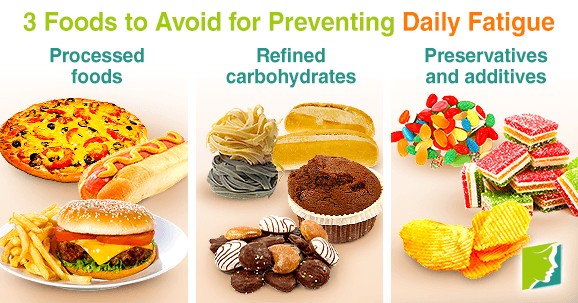Fatigue is a commonly reported symptom of menopause, affecting as many as 80% of women during their transitions. Fatigue is generally described as a lack of energy and feeling of tiredness and exhaustion. Other characteristics of fatigue include apathy, decreased attention span, and irritability. It can be triggered by a number of things, such as an unhealthy diet. It is also crucial not to skip meals or overeat if you want to prevent fatigue. Skipping meals and overeating causes blood sugar levels to drop and spike.
3 Foods to Avoid
Look for ways to slowly eliminate some of these unhealthy foods from your diet.
Processed foods
Greasy fast food and processed foods are primary triggers of fatigue. Foods high in saturated fats take the body longer to digest, which causes feelings of sluggishness and fatigue. Examples of these foods are:
- Pre-packaged food
- Pre-cooked meats
- Fried food
- Canned meals
- Takeout meals
Refined carbohydrates
Foods high in sugars and white flour do not offer much nutrition and can induce sharp fluctuations in blood sugar level. Avoid foods like:
- Cookies
- Cakes
- White bread
- White rice
- Flour-enriched pasta
Many of these foods, like bread and rice, can be replaced by their whole grain versions, which sustain energy levels and are high in fiber.
Preservatives and additives
Fat-free and reduced fat foods are typically packed with unhealthy additives to replace the flavor and texture that regular fat usually provides. These additives (e.g., sugars and thickeners) can be far worse and cause weight gain more than natural fat. Read the nutrition labels for fat-free and reduced fat items and compare them to their regular versions to be aware of what is in your food.
Foods to Fight Fatigue
Incorporating these foods into your diet in place of the above foods can not only help fight fatigue, but also lead to overall better health and well-being.
Essential fatty acids
There is such a thing as good fat, which is vital in maintaining a healthy, balanced diet. These good, unsaturated fats provide energy and help rebuild cells. Essential fatty acids can be found in:
- Nuts: walnuts, almonds, and cashews
- Fish: salmon, sardines, and other oily fish
- Avocados
Raw fruits and vegetables
Most fruits and vegetables provide essential nutrients and increase energy. They are low fat and nutrient-rich, helping to counter fatigue. Great fruits and veggies include:
- Asparagus
- Broccoli
- Spinach
- Apples
Protein
Studies recommend adult women consume 0.8 grams of protein per day for every kilogram of body weight. In the body, protein-rich foods are broken down in amino acids, cells' building blocks. Protein is found in:
- Eggs
- Lean meats like grilled chicken
- Tofu
Foods loaded with sodium and saturated fats can cause sluggishness and fatigue. It is important to try and avoid these foods as much as possible in order to prevent fatigue. It is also important to remember not to skip meals. Skipping meals causes hunger to build up, which typically results in overeating and fatigue. It is recommended to eat small, healthy snacks every three to four hours in addition to regular meals to stay healthy and boost energy levels.
Sources
- Harvard School of Public Health. (2014). Protein. Retrieved August 15, 2014, from http://www.hsph.harvard.edu/nutritionsource/what-should-you-eat/protein/
- National Health Service UK. (2013). Self-help tips to fight fatigue. Retrieved August 12, 2014, from http://www.nhs.uk/Livewell/tiredness-and-fatigue/Pages/self-help-energy-tips.aspx
- National Institutes of Health. (2014). Fatigue. Retrieved August 12, 2014, from http://www.nlm.nih.gov/medlineplus/fatigue.html
- National Institutes of Health. (2013). Protein in diet. Retrieved August 15, 2014, from http://www.nlm.nih.gov/medlineplus/ency/article/002467.htm




